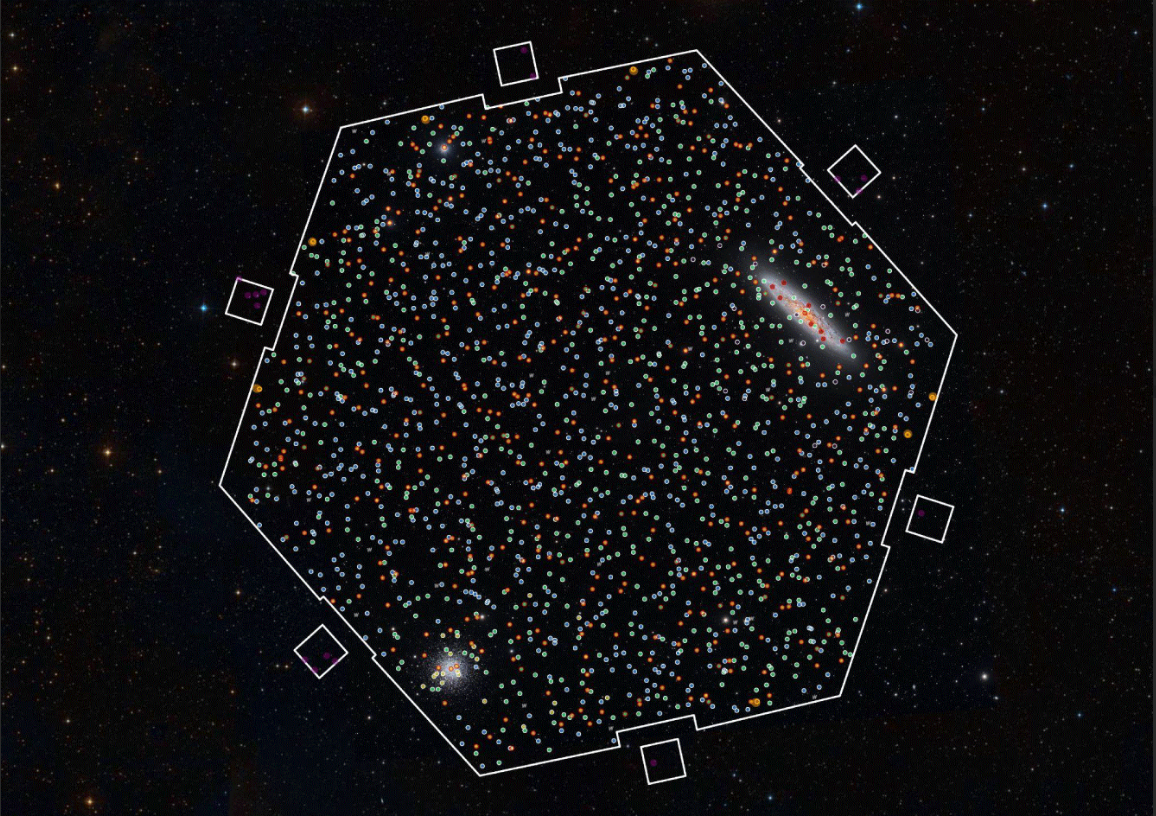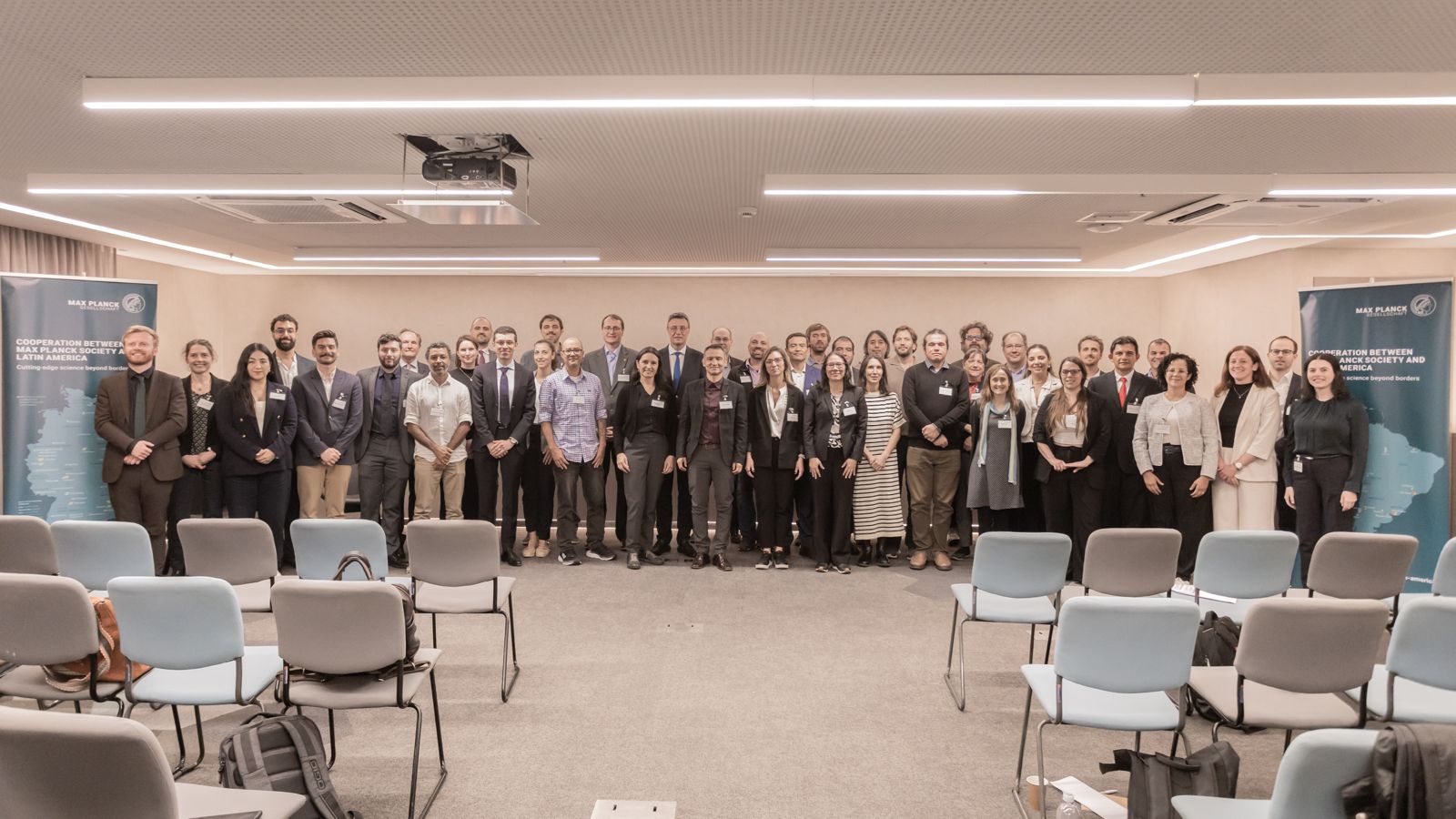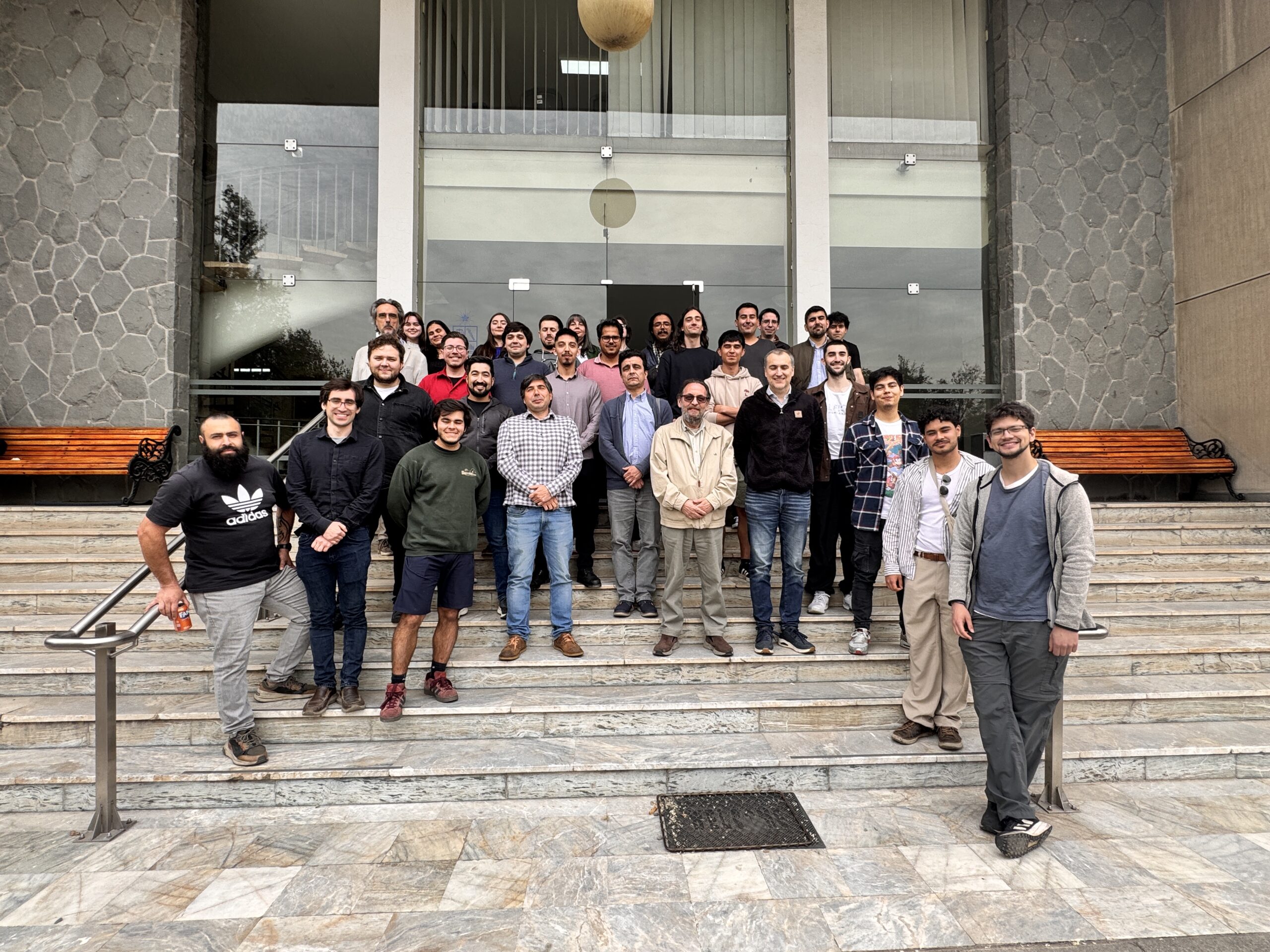
CATA addressed the challenge of interdisciplinary work in UFRO Congress
The meeting, held in Temuco, was attended by the general manager of the Center, Elise Servajean, who explained how astrophysics has needed to link up with different disciplines for its development and the importance of generating opportunities to promote this type of joint work.
In order to create a scenario for collaborative dialogue and synergy between researchers from different disciplines that may be interrelated, the “II Congress Inter and Transdisciplinary Challenges towards Frontier Research” was held by the Universidad La Frontera, UFRO, in Temuco.
This Congress brought together professionals engaged in scientific research in various areas such as humanities, social sciences, engineering, physics and/or biology.
Elise Servajean, general manager of the Center for Astrophysics and Related Technologies, CATA, participated in this activity; she was part of the discussion “Methodologies and Good Practices in Inter and Transdisciplinary: Making visible the how of collaboration”.
“In an increasingly interconnected and complex world, adopting an interdisciplinary approach is not an option, but a necessity. In particular, in our country, we have seen a growing motivation on the part of the Ministry of Science, through the National Agency for Research and Development, ANID, to generate spaces for research of these characteristics, from the creation of the Inter and Transdisciplinary group of the Fondecyt projects, to funds for international collaboration with this approach, passing through indications in the bidding bases of research centers, which show the interest in this type of initiatives”, detailed the general manager of the Center.
In addition, she explained these concepts in the panel, where she gave the example of how the interdisciplinary character is fundamental for astronomy, where from the curiosity of human beings to understand their environment, it became a science that not only uses methods and knowledge from other fields, but also integrates and transforms them.
Physics provides the fundamental laws that govern the behavior of celestial bodies. Chemistry, through spectroscopy, allows us to understand the composition of stars and planets. Mathematics is the language used to describe and predict astronomical movements. Biology leads us to search for life beyond Earth, opening new horizons in astrobiology. Disciplines such as geology and computer science also play essential roles, whether in the study of rocky planets or in the analysis of huge volumes of data. Not to mention engineering, which provides the tools to develop all the instruments necessary to study the Universe, giving way to astroengineering, which is becoming increasingly important in our country. With the implications that can also lead to technology transfer, for different areas relevant to society and sectors of the economy, from the study of the cosmos.
Santiago Prat, in charge of Technology Transfer at CATA, who was also present at the working day at UFRO, is concerned about this last topic.
Looking beyond
Experts from different areas of knowledge shared their knowledge and experiences in this congress with the aim of establishing alliances and collaborative ties with colleagues from other disciplines. The working tables were focused on topics such as Technologies, Gender, Inclusion, Interculturality, Politics, Education, Sustainability, Health, among others. It was also an opportunity to address the challenges that this interdisciplinary work implies. This was emphasized by UFRO’s Vice-Rector for Research and Graduate Studies, Dr. Rodrigo Navia, who said that “we recognize that many areas of cutting-edge knowledge demand multiple perspectives that are expressed in the articulation of different disciplinary fields, and this new version expands the levels of understanding of problems of diverse nature that require creativity and innovation for their resolution”.
CATA’s general manager also highlighted the importance of meetings of these characteristics precisely to continue advancing in the country’s development.
“It is relevant to create spaces for dialogue, recognizing that current and future social challenges require a diversity of perspectives, an interdisciplinary vision. A space to share the cultural change we are experiencing and where we talk about the need for a more integrated and collaborative approach in the search for answers to the big questions of each moment. And perhaps we will ask ourselves, what new disciplines will astronomy integrate to face the challenges of the future?”, emphasized Elise Servajean.
Recent news
-
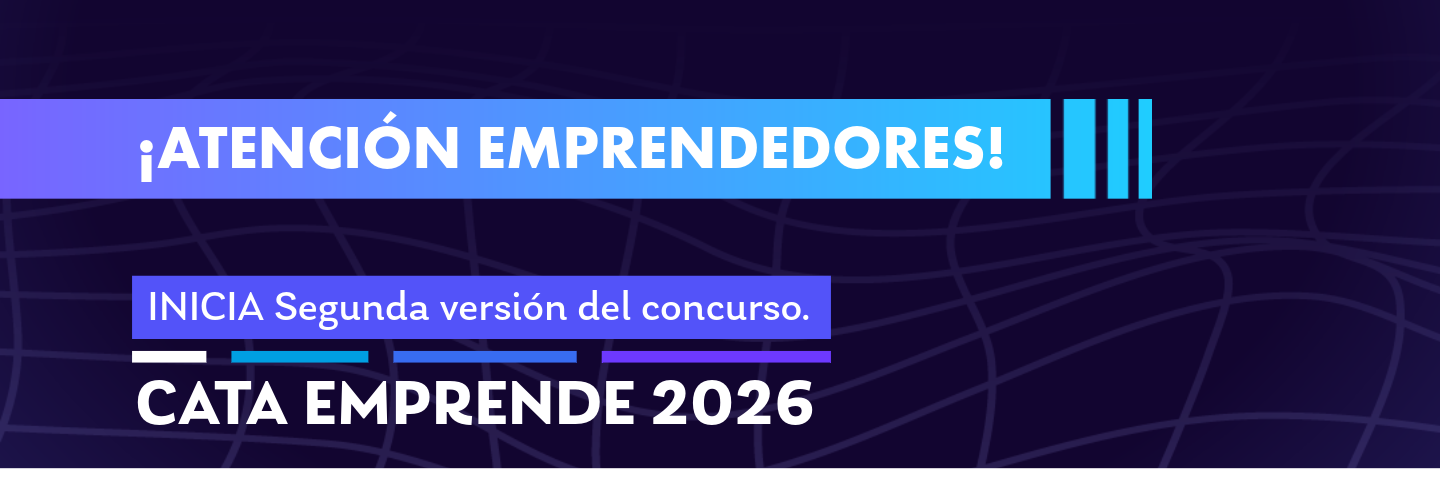 Publicado el: 12/12/2025Call for applications for the 2026 “Cata Emprende” program now open
Publicado el: 12/12/2025Call for applications for the 2026 “Cata Emprende” program now open -
 Publicado el: 05/12/20252026 Applied Research Fund opens
Publicado el: 05/12/20252026 Applied Research Fund opens -
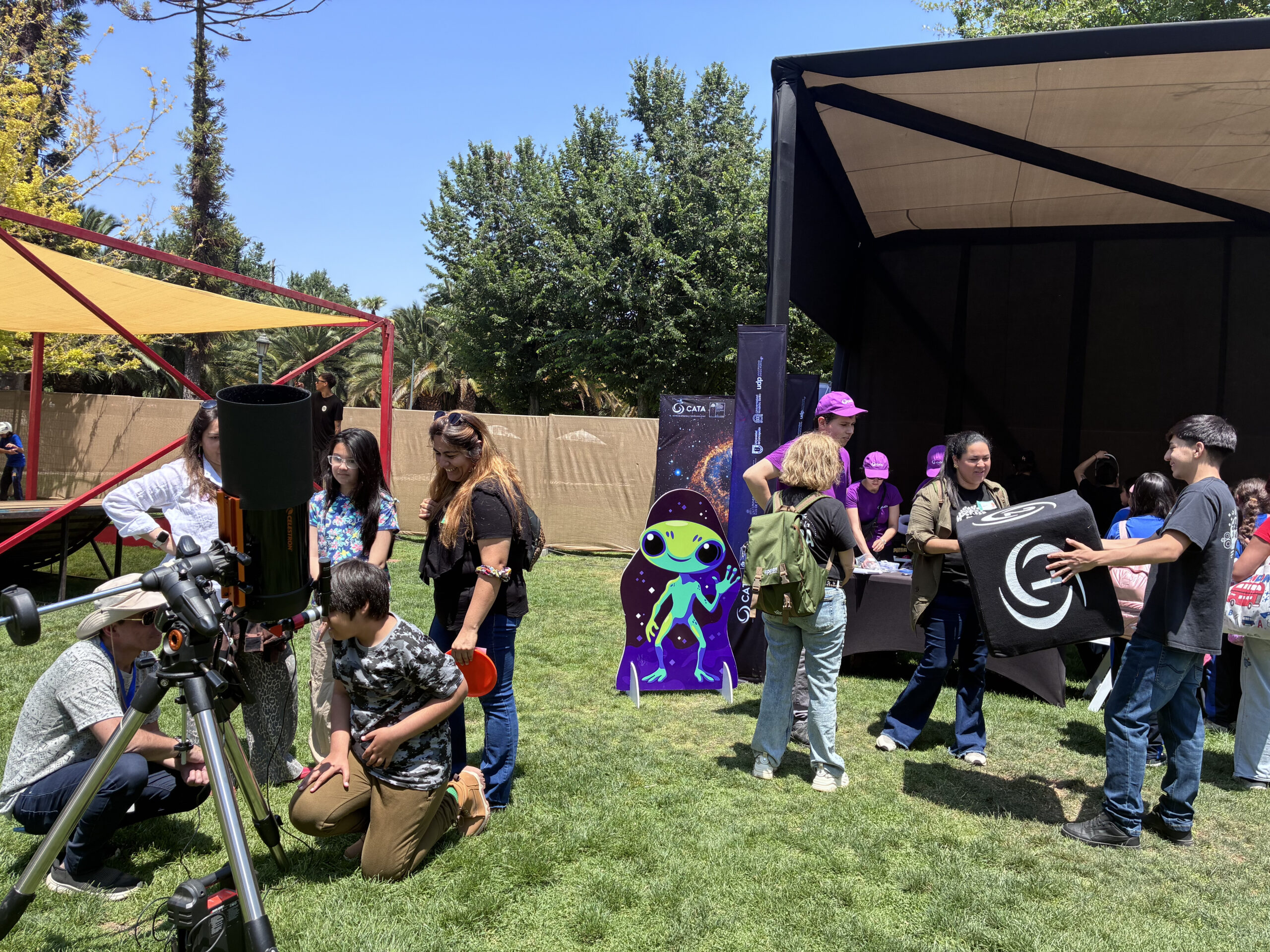 Publicado el: 01/12/2025The astronomical experience was part of the 4th Ladera Sur Festival.
Publicado el: 01/12/2025The astronomical experience was part of the 4th Ladera Sur Festival. -
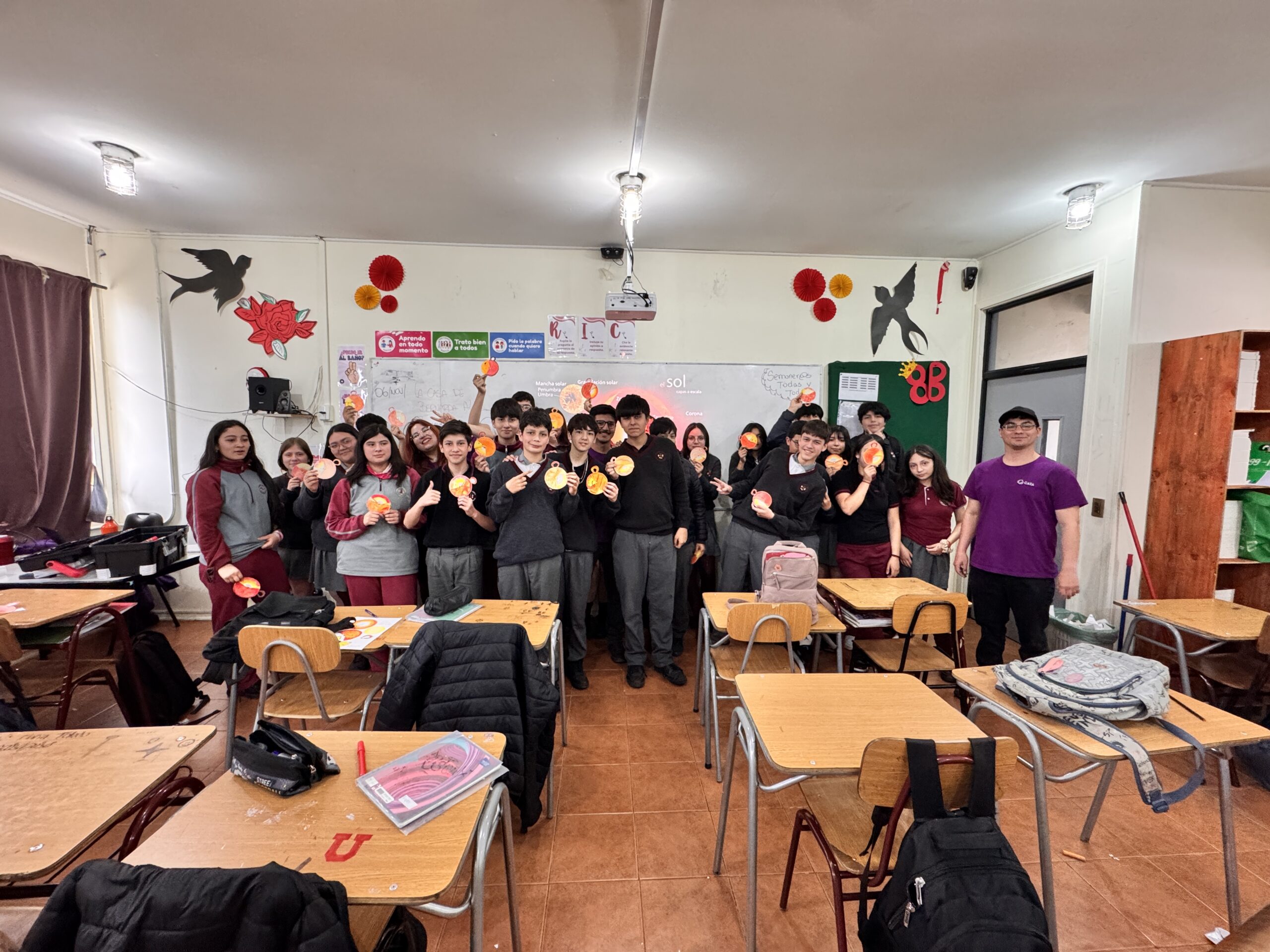 Publicado el: 25/11/2025Students from Angol held an astronomy workshop with CATA
Publicado el: 25/11/2025Students from Angol held an astronomy workshop with CATA -
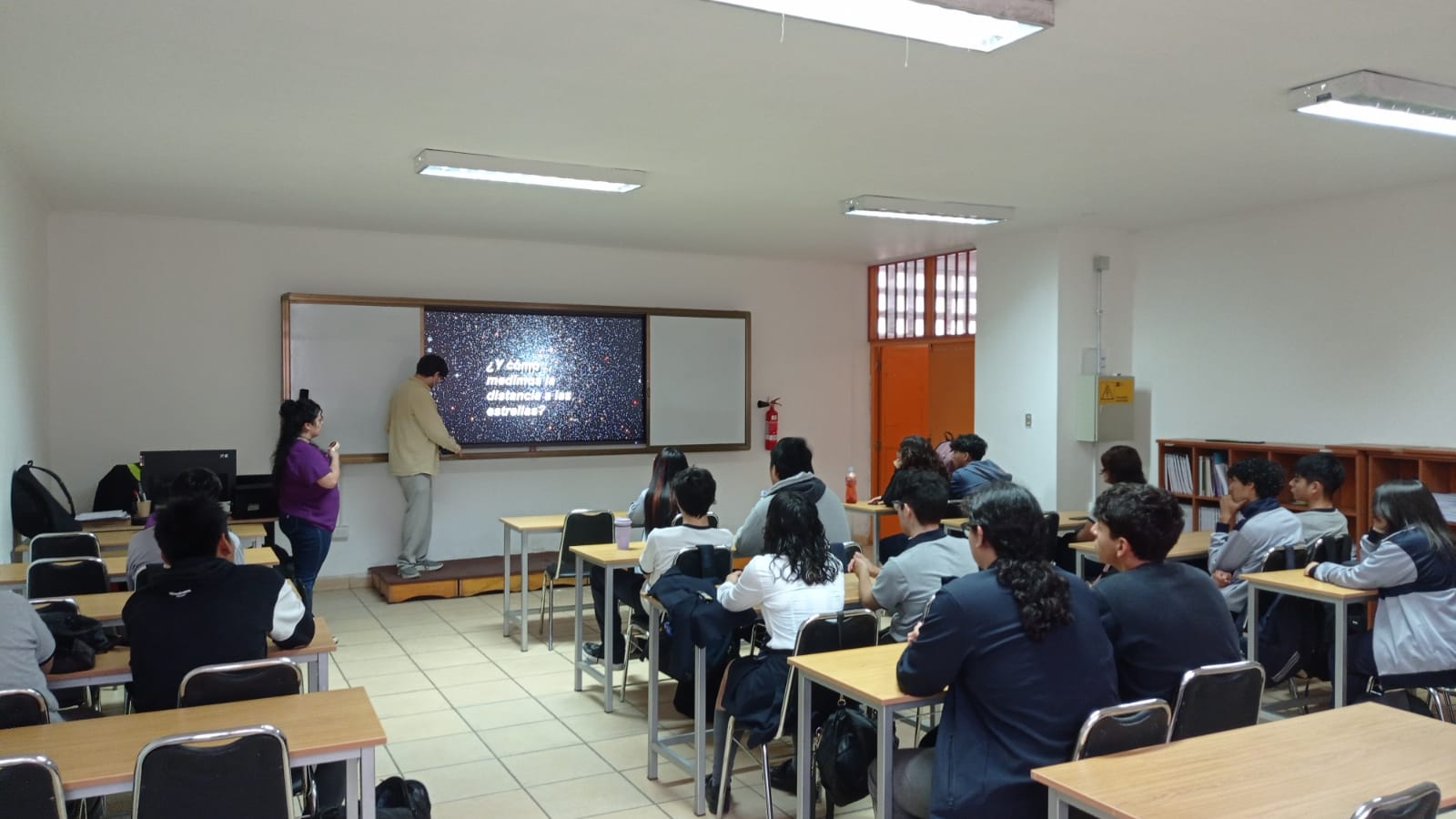 Publicado el: 17/11/2025Astronomy outreach reached communities in the Arica and Parinacota region
Publicado el: 17/11/2025Astronomy outreach reached communities in the Arica and Parinacota region
Categories list
- Acknowledgments 21
- Astrobiology 6
- AstroCluster 1
- Black holes 18
- Corporativo 57
- Cosmology 5
- Descubrimientos 22
- Disclosure 74
- Exoplanets 13
- Extension 6
- Galaxies 21
- Galaxies formation 5
- Inter y Transdisciplina 4
- Local Universe 16
- Publications 6
- Sin categorizar 34
- Solar System 21
- Stellar formation 8
- Technology 16
- Technology Transfer 18




